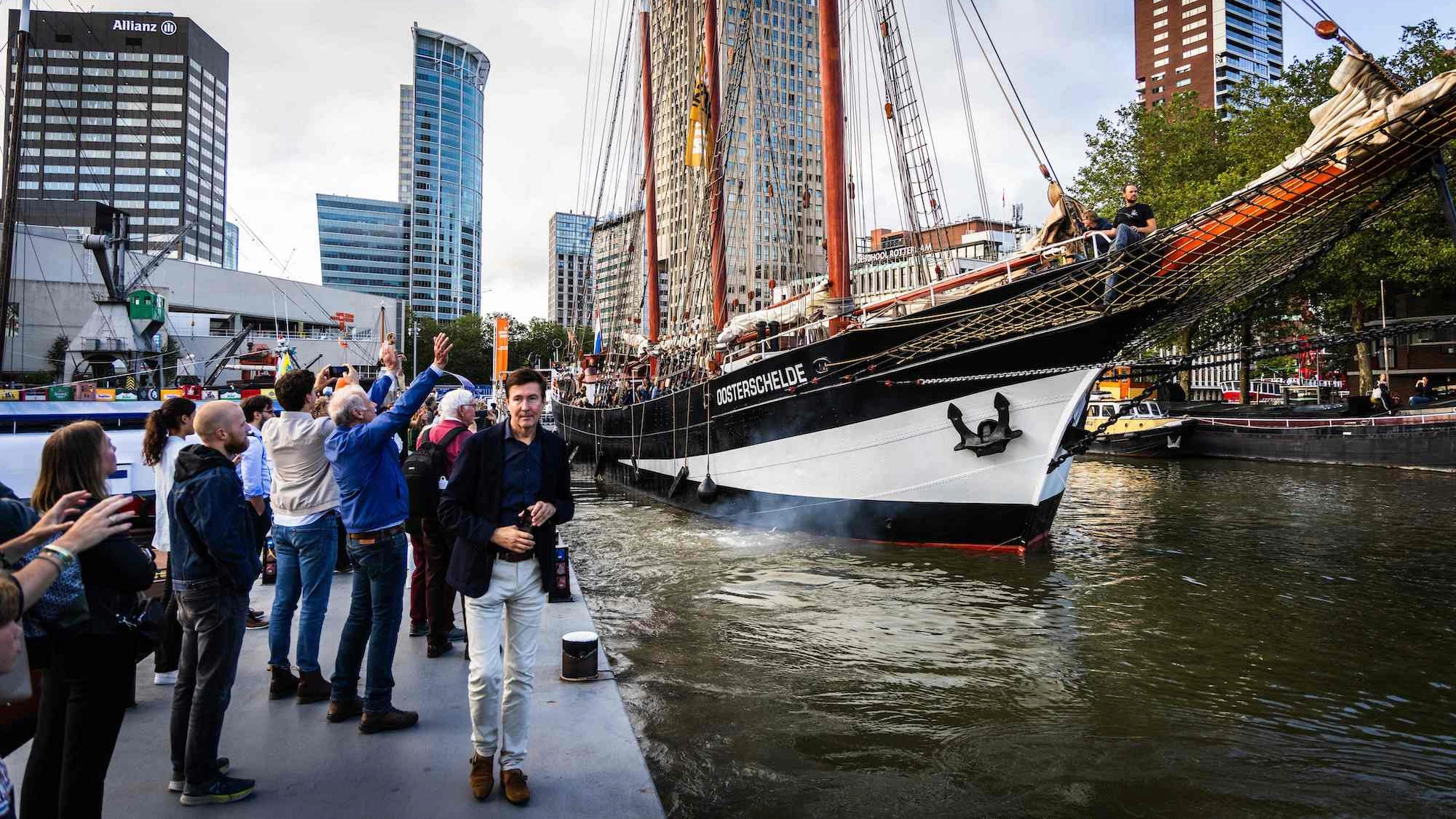

On August 15, a schooner set sail from Plymouth on the southern coast of England to recreate the South America-bound voyage taken by biologist Charles Darwin almost 200 years ago. The Dutch tall ship Oosterschelde began its two year mission as a floating laboratory, where about 200 conservationists and naturalists will gather along the way to take part in a project called Darwin200.
[Related: Let’s talk about Charles Darwin’s sexy theory of selection.]
In 1831, the HMS Beagle set sail from Plymouth with a then 22-year-old Charles Darwin aboard. The five-year journey was primarily intended to explore the coastline of South America and chart its harbors, with Darwin tasked to make scientific observations. He explored Brazil, Argentina, Chile, and the remote areas of the Galápagos Islands. Over the course of the journey that Darwin said was “by far the most important event in my life,” he brought back specimens of more than 1,500 different species and this work influenced his book On the Origin of Species and the theory of evolution.
The Oosterschelde is expected to make the 40,000 nautical mile expedition and hopes to anchor in 32 ports, including all the major ports visited by the Beagle. It expected to make its first landing in the Canary Islands and then cross the Atlantic Ocean to Brazil. It will then follow along South America’s eastern coast, up the west coast, and out to the Galápagos. It will then sail to Australia and New Zealand, before stopping in South Africa, and returning to England.
“I always think it is very much worth reminding ourselves on a daily basis that humans and the rest of the living world share a common origin,” Sarah Darwin, a botanist and the great-great-granddaughter of Charles Darwin told the Associated Press. “Darwin was saying that 160 years ago, that we were related with all other nature. We’re not above it, we are part of nature.”
The Darwin200 project has been in the works for at least a decade and aims to empower a new generation of exceptional environmental leaders through training some of the world’s top young conservationists ranging from 18 to 25 years-old. 200 young people were selected based on their accomplishments aimed at making the world a better place and will join the voyage at different stages.
“This is about hope, it’s about [the] future and it’s about changing the world,” leader Stewart McPherson told the AP.
[Related: Letters From Charles Darwin.]
Today’s naturalists are studying a world a bit different than Darwin. The planet’s birds, reptiles, mammals, fish, and amphibians have already shown population declines of around 68 percent since the 1970s and 10 percent of terrestrial biodiversity is set to decrease by 2050 if new policies are not immediately put in place. In December 2022, 200 countries’ delegates at the United Nations Biodiversity Conference (COP 15) reached the 30 by 30 deal, vowing to protect 30 percent of the Earth’s wild land and oceans by 2030, thus representing the most significant effort ever to protect the world’s dwindling biodiversity. The deal also provides funding in an effort to save and preserve biodiversity in lower-income countries. Currently, only 17 percent of terrestrial and 10 percent of marine areas are protected through legislation.
Still, more work is needed as some scientists believe current estimates of biodiversity loss are even higher than scientists first expected. One of the goals of Darwin200 is to develop projects to save the species it is studying along the way before it’s too late.
“We all know we’re in the midst of the sixth great extinction with a lot of doom and gloom about the problems facing the environment, climate change and loss of biodiversity,” Famed primatologist and Darwin200 supporter Jane Goodall told Reuters. “This voyage will give many people an opportunity to see there is still time to make change.”
